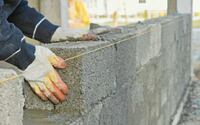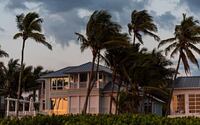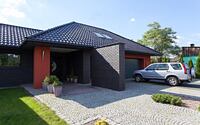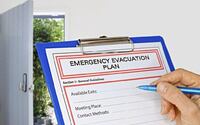5 Things You Must Incorporate to Build a Perfect Hurricane Proof House on a Budget
Over time, Hurricanes earned a reputation of wreaking havoc in cities, causing massive property damage and leading to economic devastation. This damage is caused by the elements that accompany hurricanes, which include winds and storms. If you live in hurricane-prone areas, especially living next to the coastline, you need to take preventive measures to protect your family and property from damage. While most people do not make an effort to make their homes hurricane proof because of the perceived costs, it is worth noting that you don’t have to break the bank. Here are the five things you can incorporate in your house to make it hurricane-proof.
1. Pay attention to the construction materials & design
If you are building the house from scratch, then you might want to consider working with construction materials that are hurricane proof. The design of the house will also significantly impact its ability to withstand a storm. Instead of using wood, consider working with concrete to build the walls of the house. You can use foam panels filled with concrete and steel panels as they do not buckle even when exposed to the strongest winds. Also, they can withstand all the flying debris in a storm.
Deep foundations also help in keeping the house erect even during the strongest hurricanes. The other hurricane-proof materials you can include in your project are stone pavers, steel roof, and hurricane clips.
2. Must incorporate Hurricane Proof Windows
Working with the standard windows will not protect you from hurricanes. Use hurricane proof windows to build your house, and you will rest assured that the storm will not destroy your property or break your windows into shards and cause injuries to the house’s occupants. Also known as storm proof windows, hurricane proof windows are made with polyvinyl butyral (PVB), which holds the glass together even after the strongest impact. The impact-resistant glass is able to withstand force and projectiles. These types of glass only break after the strongest impact, and they still do not break into shards. To make them even more effective, use a strong frame material such as steel and aluminum for the windows. These windows are flexible and can be made with varying thicknesses and different types of glazing that are single, double, and even triple glazing. The thicker the glass, the higher the ability to withstand impact. The same applies to the levels of glazing.
There are still many options available that can provide you the required safety and security against the winds and damaging blows. It can be laminated glass which is also referred as a modern-day safety glass, provides greater security and its interlayer glazing serves as a sound
barrier as well.
3. Heavy Trees are eco-friendly, but might be dangerous if nearby the walls
If you live in a hurricane-prone neighborhood, you need to prepare your outdoors for the protection of your home and family. You should not have large trees and big shrubs near the house. Also, you should keep garden tools and other items that might fly during a storm in a safe place. There are several ways that you can prepare your landscape for a hurricane. At the onset of your home’s construction, ensure that you choose the right trees; you should consider hurricane-resistant trees, often labeled as “Florida Fancy.”
You should also maintain and inspect the trees and shrubs in your landscape. Check for damaged branches and prune them as they are likely to break off from the tree during a storm. Also, consider cutting or uprooting trees that are rotten or dying, with damaged roots. Flower baskets, patio furniture, bins, toys, and other items should be stored inside the house to prevent them from flying and breaking the windows or knocking someone over.
4. Vehicles must be on the safest zone
Parking your car appropriately during a hurricane is vital. There are areas in your home that can be considered safe for vehicles. The ideal location for parking your vehicle during a storm is somewhere the car will not ride off or flood. These locations include higher ground in your compound, where flooding is less likely to occur. A covered parking garage will also go a long way in protecting your car from flying debris, which can lead to the breakage of windows and dents. You do not want to incur repair costs once the hurricane is over. Cars should also be parked far away from power lines and trees. Trees and branches fall on cars during storms leading to write-offs.
5. Must develop an easy escape route for an evacuation plan
While you have put strategies in place to protect your property, such as building a hurricane proof house, you should also put into consideration the safety of your family. Sometimes the storms persist, and the best thing you can do is to evacuate your family. It is, therefore, critical that you have an evacuation plan. Have several escape routes, if possible, and communicate with your family on which ones should be used in case there is a need for evacuation. You should also come up with a meeting point in case you lose each other in the middle of
hurricane chaos.
Take away
Hurricanes cause massive damage, loss in property, and even loss of lives too. To protect your family and property, you need to prepare adequately. Preparation begins with building a hurricane-proof house by using hurricane-proof materials, developing an evacuation plan, and getting rid of things within your surroundings that can damage property. Visit here to purchase a high-quality hurricane glass with your required glass shape, dimensions, type & thickness, and corner finishing.
Hurricane proof houses can withstand most of the storms as they are usually not extreme. Take the pointers above into considerations if you do not want to repair and replace items in your home after every hurricane.
- by Matt Watts








